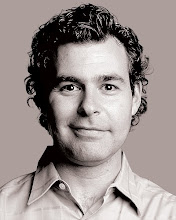Try as it might, the poker world just can't make its sport respectable
By STEVE FRIESS
By now, I thought I’d care. And yet, even given where I’m sitting and whom I’ve spoken to in recent weeks, I just don’t. And if I don’t, I suspect few of you do. Which is the problem.
I’m talking about poker, and I’m writing this from one of just a handful of primo ringside seats allotted to journalists covering the head-to-head match-up that, a few minutes ago, led to the crowning of 22-year-old Peter Eastgate, from Denmark, as the 2008 World Series of Poker Main Event champ.
It was an entertaining moment, to be sure. Eastgate’s cheering section broke out into jubilant Danish song—it sounded a bit like the Oompa-Loompa song in a different melody—when he laid out an ace of diamonds for a straight that beat opponent Ivan Demidov’s two pair. Eastgate got $9.15 million, Demidov got $5.8 million, and I got a few hundred bucks for chronicling it for the French wire service AFP.
I just found the entire spectacle to be of absolutely no consequence to me.
And the thing is, I really, really wanted to give a damn. I wanted to care. Because if it’s of no consequence to me, someone who actually enjoys playing poker and has gotten the chance in recent weeks to interview the likes of Doyle Brunson, Chris Moneymaker and Phil Hellmuth for a New York Times piece on the precarious condition of the game, then I can’t quite imagine what they can do to get me—or you—there.
Why does this even matter? Only because the stated intentions of those who rule the World Series of Poker are to turn the game into a full-fledged mainstream sport on par with the leagues that draw tens of millions of TV-viewing fans and earn billions of dollars each year.
That is why they did this fairly weird thing where, after thinning the 6,844 entrants to a final nine, they halted play for four months. As opposed to playing the tournament out all at once as they used to, and having the ESPN audience know well in advance who had won, this gave ESPN a chance to show the bulk of the tournament in weekly installments through the fall leading up to a two-hour finale on Tuesday that was produced in less than 15 hours after Eastgate dispatched Demidov.
“The goal is to make the World Series of Poker more popular than ever and more relevant,” said WSOP Commissioner Jeffrey Pollack a week earlier as he gave me a tour of the trailers backstage, where 90 ESPN technicians must process the final feeds. The new schedule “was developing a level of awareness in the pop culture that was very significant. But we stopped to ask, ‘If this were taking place on a basketball court or football field, how would we grow it?’”
And yet, it’s not clear that they’ve succeeded even with this scheduling stunt.Read the rest HERE








0 comments:
Post a Comment